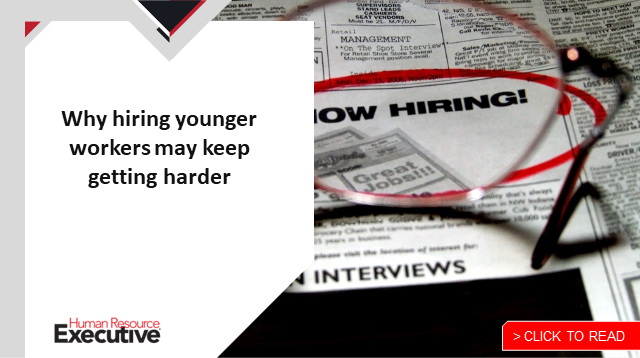When new billionaire owner Elon Musk laid off roughly half of Twitter‘s employees last week using workers’ personal email addresses, HR’s reaction and advice was strong and swift—on and off the social media network.
Clumsy, unprofessional, brutal, inhumane, the opposite of what good leaders would advise or do.
“Elon, please contact Onwards HR before you do any more layoffs at any of your companies,” Onwards HR founder Sarah Rodehorst wrote on LinkedIn and shared on Twitter, referring to her HR tech company, which helps organizations manage separations.
Within hours of the announced layoffs, global human capital research firm i4cp (Institute for Corporate Productivity) was surveying 400 HR leaders and professionals about Musk’s moves. The results weren’t favorable, with nearly three-quarters of respondents (73%) saying they would not accept an HR job at Twitter and almost as many (67%) saying Musk had mishandled management of his new company.
In addition, almost 60% said that, immediately after the layoffs, they would have already quit or would at least be “furiously” sending their resumes to other employers.
“Our research confirms an unmistakable link between a healthy culture and bottom-line business impact,” says Kevin Oakes, CEO of the firm and author of the bestselling book Culture Renovation.
Five ex-Twitter employees have already filed a class-action lawsuit against the company for violating both the state and federal Worker Adjustment and Retraining Act (WARN), accusing Twitter of violating both laws by failing to provide notice before the layoffs. The plaintiffs claim they are entitled to 60 days of pay and benefits.
Lessons from Musk’s missteps
Charles Krugel, a management-side labor and employment lawyer and HR counselor based in Chicago, says the workforce reductions were handled clumsily and unprofessionally, without the care and planning that layoffs require, and that HR leaders facing similar circumstances should observe.
 “It seems like they announced without any planning or forethought,” Krugel says, calling email a “cold, impersonal” way to lay off employees. He advises meeting face-to-face or via video, allowing time for employees to ask questions of those who have answers.
“It seems like they announced without any planning or forethought,” Krugel says, calling email a “cold, impersonal” way to lay off employees. He advises meeting face-to-face or via video, allowing time for employees to ask questions of those who have answers.
“It’s more humanistic and professional,” he says. “Based on the fact that WARN Act lawsuits are being filed, it … doesn’t appear that Twitter contemplated this ahead of time.”
Shaara Roman, founder and CEO of The Silverene Group and author of The Conscious Workplace: Fortify Your Culture to Thrive in Any Crisis, and a former chief HR officer, agrees, calling Musk’s handling of the layoffs “brutal, inhumane, a power high.” She recommends a more progressive approach that would help employees thrive and feel psychologically safe.
“Sadly, I have had to plan a reduction in force or layoffs one too many times,” she says, reflecting on her 20-plus years as a people and culture leader. “No matter the number of people laid off or the length of time they’ve been with the company or the level they’re at, the employees are human beings and it is simply a good practice to treat other humans with grace, dignity and kindness.”
It’s advice that may be relevant to an increasing number of companies, particularly in the tech sector, as economic uncertainty continues to loom. In the last week, for instance, both Facebook parent company Meta and rideshare service Lyft announced—via companywide emails—that they were laying off 13% of their respective workforces (11,000 employees at Meta and 650 at Lyft).
At Twitter, rather than emailing everyone and shutting off corporate access immediately, Musk could have taken a cascade approach, informing senior management, who then informs their direct reports and so on. Another option would be an all-hands meeting, letting everyone know that changes were coming and then moving to small group meetings to share details about changes in employment status.
“Even having a meeting where everyone was informed at once would have been better than finding out via email,” she says. “In the new world of the Great Resignation, quiet quitting and employees who are demanding empathetic managers, Musk’s moves are the opposite of what a modern leader should embody and also counter to what any good HR leader or consultant would advise a CEO to do.”
Those left behind
For those still employed at Twitter, however, experts say that restoring their faith in the company should be HR’s top priority.
“Moving forward, it seems clear that Twitter leadership has a significant uphill battle to renovate the culture to create a work environment where employees can thrive,” Oakes says. “If they can create a healthier culture, long-term it will do more for the financial fortunes of the company than any business model change.”
Damage to the company’s reputation as an employer also will need to be managed, says Lorrie Lykins, vice president of research at i4cp. “Those in human resources and other leadership roles are always in a tough position when there’s a major upheaval in an organization,” she says. “This is next-level upheaval, and it’s so public that everything is magnified.”
 Absent a clear mission, governing principles and inspiring leadership, she says, “those in HR are left without much of an argument for why employees who survived the first layoff would want to stick around, let alone dig in to help rebuild.”
Absent a clear mission, governing principles and inspiring leadership, she says, “those in HR are left without much of an argument for why employees who survived the first layoff would want to stick around, let alone dig in to help rebuild.”
Krugel agrees, saying that in the end, it all could backfire.
“Once [employee-management] relations, trust and respect are diminished or destroyed,” he says, “it’s very tough to re-establish them.”

